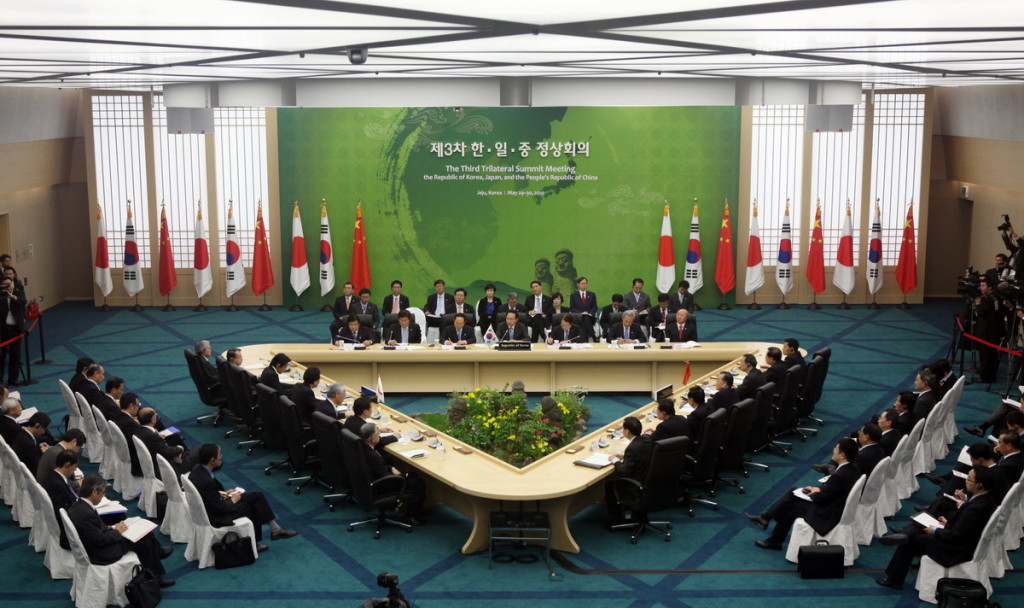Hedging Their Bets, China, Japan and South Korea Push Trilateral Ties
The CIP’s J. Berkshire Miller analyzes the slow thaw between Japan, Korea and China through trilateral initiatives.
[comment/analysis] Foreign ministers from China, Japan and South Korea gathered in Seoul last month to discuss ways to restore trilateral diplomacy in the triangle of Northeast Asia. This was the first high-level trilateral meeting in nearly three years, the chasm between all three countries fueled in large part by the toxic state of bilateral relations between Tokyo and Beijing over their territorial dispute in the East China Sea. Compounding tensions are long-standing, historical grievances around World War II and the perception, widely held in Seoul and Beijing, that Japanese Prime Minister Shinzo Abe is bent on revising the traditional narrative of Japan’s culpability during the war.
Despite these strains, trilateralism should not be underestimated. It has already allowed all parties to compartmentalize their bilateral grievances and provided a kind of diplomatic camouflage to engage despite outstanding differences. After all, before their half-hour meeting today on the sidelines of the Asian African Summit in Indonesia, Chinese President Xi Jinping and Abe had only met once—a brief meeting in Beijing last fall—since Tokyo’s decision to purchase three of the disputed Senkaku Islands, which China claims as the Diaoyu, in September 2012. Meanwhile, the Japan-South Korea relationship has been mired in a similar diplomatic impasse. South Korean President Park Geun-hye has not agreed to a summit with Abe since she took office in early 2013, citing Japan’s revisionism of its actions in South Korea during World War II. Yet those tensions didn’t stop last month’s trilateral meeting, nor a meeting last week of South Korea and Japan’s defense and foreign ministers, their first high-level security talks in five years, in an effort to reignite cooperation. …
For more, read at WPR site
Related posts:
Category: ECONOMICS, FOREIGN POLICY & SECURITY, POLITICS, SOUTH ASIA & ASIA PACIFIC


